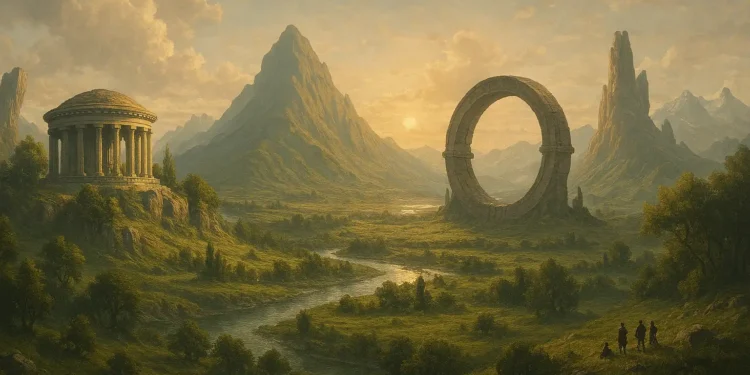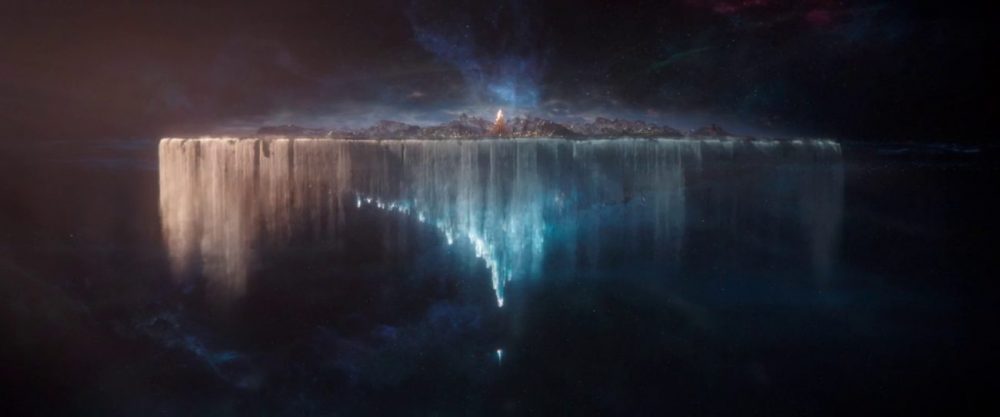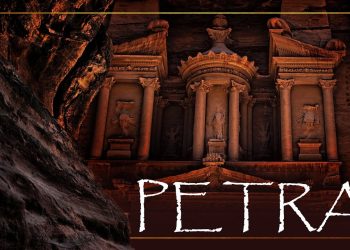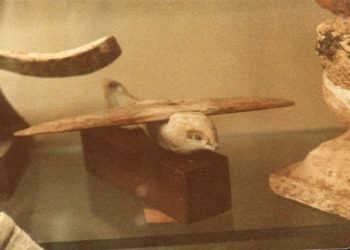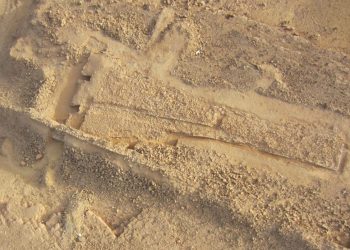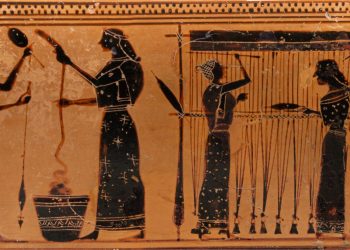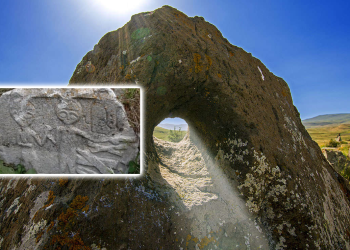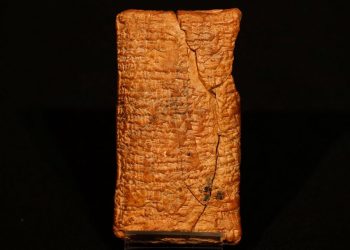Long before the rise of recorded civilizations, there were whispers of a hidden world — a place untouched by time, ruled by alleged giants, and illuminated by a sun that never set. Ancient Greek writers spoke of it with awe, philosophers speculated about its reality, and mystics believed it was the cradle of humanity itself. This place was known as Hyperborea, the mythical land of the gods.
Hyperborea the mythical land of the gods
According to ancient texts, Hyperborea lay far beyond the reach of ordinary travelers, somewhere past the icy breath of the North Wind. It was said to be a paradise where disease and war were unknown, where people lived for centuries, and where gods like Apollo retreated during the winter months. Some believed it was a real location — perhaps in the Arctic, or even a lost continent now buried beneath ice. Others saw it as something more: a symbolic echo of a forgotten golden age.
Hyperborea has never been found on any map, but its story has echoed through ancient poetry, philosophical texts, and esoteric traditions for thousands of years. Whether it was a real place or a symbolic one, the ideas surrounding it have shaped myths of lost civilizations and golden ages. Here are 30 of the most intriguing references and interpretations tied to Hyperborea, the mythical land of the gods — drawn from classical sources, mystical writings, and enduring legends.
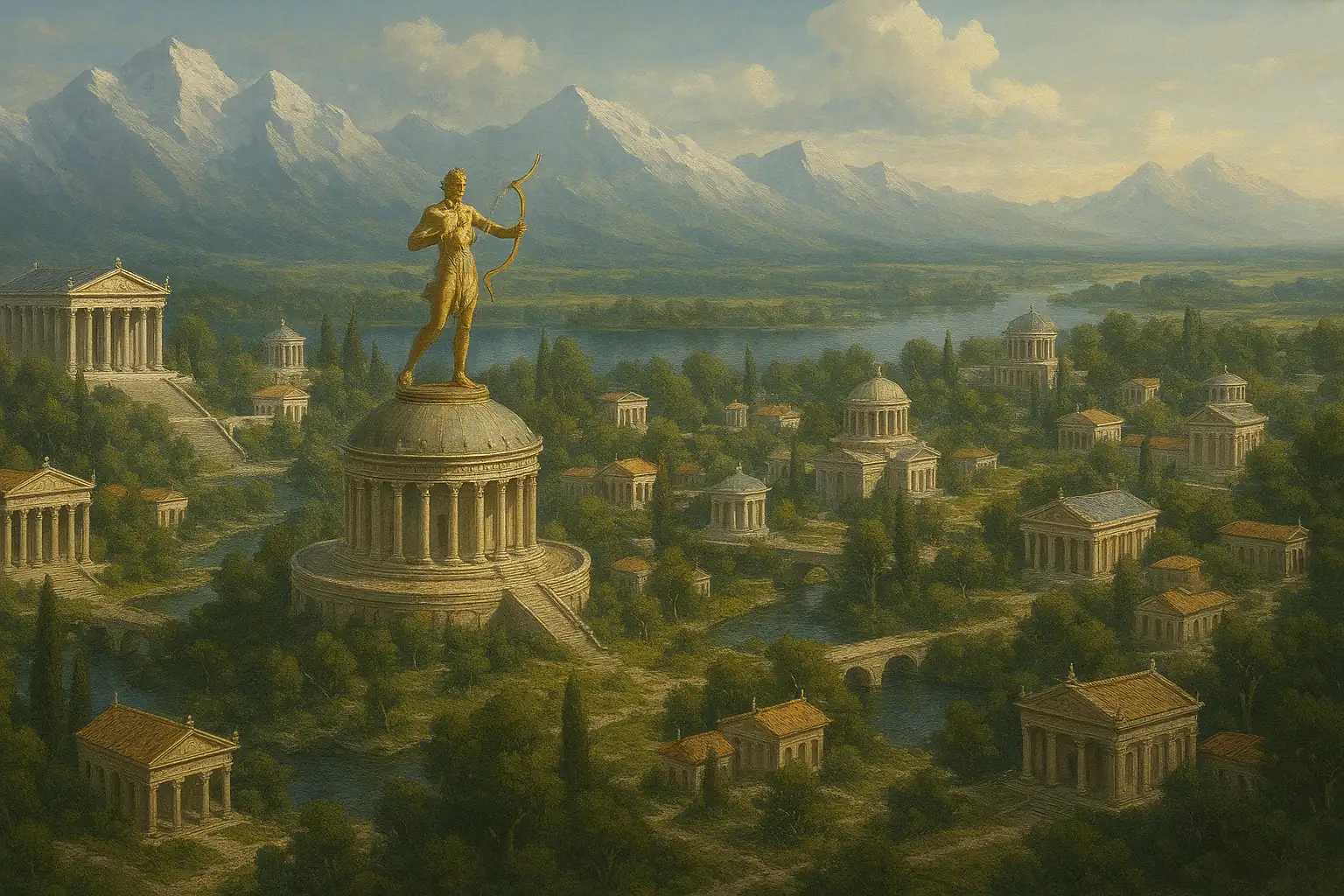
30 Things You Should Know About Hyperborea
-
Hyperborea the mythical land of the gods was believed to exist far north of Thrace, beyond where Boreas, the North Wind, made his home.
-
Greek poet Pindar described it as a place of “otherworldly perfection,” where life was free from hardship.
-
Inhabitants of Hyperborea were said to be giants — peaceful, powerful beings living in harmony with nature and the divine.
-
The sun was said to shine there twenty-four hours a day during certain parts of the year, suggesting a location within or near the Arctic Circle.
-
Some legends even claimed the sun rose and set only once a year — a poetic nod to polar extremes.
-
Hecataeus of Abdera in the 4th century BC was one of the first to equate Hyperborea with Britain.
-
According to Hecataeus, the Hyperboreans built a spherical temple dedicated to Apollo — some believe this may have referred to Stonehenge.
-
Alcaeus, a Greek poet, wrote of Apollo’s journey to Hyperborea, suggesting divine ties between gods and this hidden land.
-
Strabo described Hyperborea as a peninsula beyond modern-day France that stretched more north-to-south than east-to-west.
-
Pindar also wrote that no ship or traveler could ever reach Hyperborea — it was accessible only by divine will.
-
Herodotus mentioned Hyperborea in his Histories (Book IV), citing earlier references by poets like Hesiod and Homer.
-
Homer may have referenced Hyperborea in his lost epic Epigoni.
-
Aristeas, a 7th-century BC poet, reportedly wrote of the Hyperboreans in a now-lost poem called Arimaspea, describing a journey through the Kazakh Steppe.
-
Hyperborea was often mentioned alongside other “terrae incognitae” like Thule — mysterious northern lands outside the known world.
-
Some believed that the Riphean Mountains marked the boundary of Hyperborea. These snow-covered peaks remain unplaced in real geography.
-
Ancient authors like Aristotle, Ptolemy, and Plutarch referenced the Riphean range but never located it precisely.
-
Hierocles, a Stoic philosopher in the 2nd century AD, associated the Riphean Mountains with the Ural Mountains in modern Russia.
-
Intriguingly, the Urals are home to enormous megalithic structures — some still unexplained.
-
According to Madame Blavatsky, Hyperborea was home to the “second root race” — a pre-Atlantean civilization of great spiritual power.
-
In certain esoteric belief systems, Hyperborea is viewed as the earthly Garden of Eden, where physical and spiritual realms once merged.
-
The Boreades — descendants of Boreas — were believed to be divine rulers of Hyperborea, described as ten feet tall and priest-kings of Apollo.
-
Roman author Aelian wrote of the Boreades as giant priests born of Boreas and the goddess of snow, Chione.
-
These giant kings were said to have ruled with peace and wisdom, in stark contrast to the violent gods of other mythologies.
-
Some authors believed that Hyperborea was not just a place, but a state of consciousness — a higher frequency existence now lost to time.
-
John G. Bennett, a British mathematician and philosopher, proposed in 1963 that Indo-European civilization originated in ancient Hyperborea.
-
Some modern fringe theories link Hyperborea with Antarctica, suggesting a pole shift buried its remains beneath the ice.
-
Others claim Hyperborea still exists, hidden behind electromagnetic veils or in an alternate dimension.
-
Ancient Greek sources often described the Hyperboreans as living over a thousand years, enjoying a life of effortless bliss.
-
Apollo was said to spend his winters in Hyperborea, returning each year to Greece rejuvenated.
-
Despite centuries of speculation, Hyperborea the mythical land of the gods remains one of the most enduring mysteries of ancient lore — a civilization spoken of in poetry, philosophy, and legend, yet never found.



